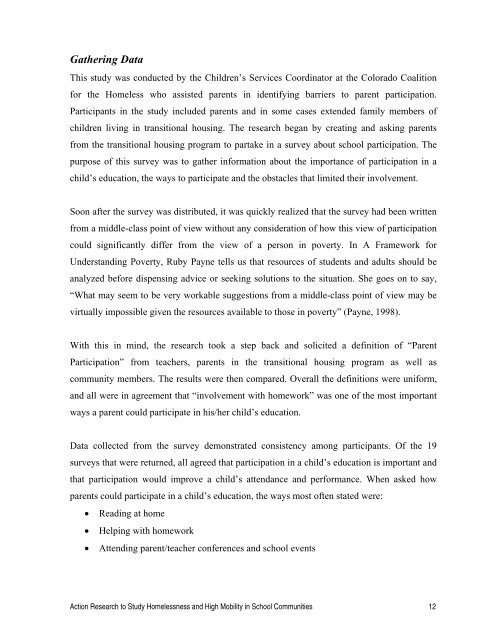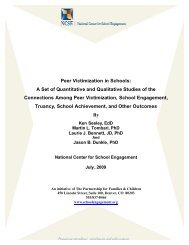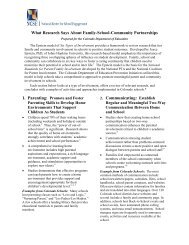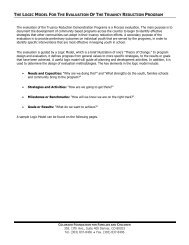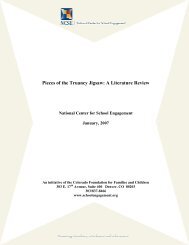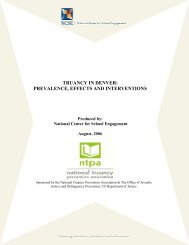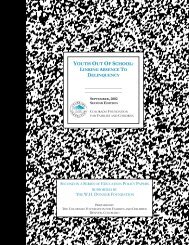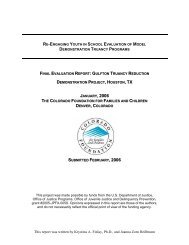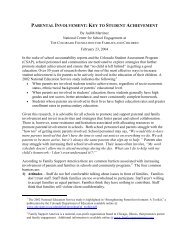Section 1: Academic Achievement - National Center for School ...
Section 1: Academic Achievement - National Center for School ...
Section 1: Academic Achievement - National Center for School ...
You also want an ePaper? Increase the reach of your titles
YUMPU automatically turns print PDFs into web optimized ePapers that Google loves.
Gathering Data<br />
This study was conducted by the Children’s Services Coordinator at the Colorado Coalition<br />
<strong>for</strong> the Homeless who assisted parents in identifying barriers to parent participation.<br />
Participants in the study included parents and in some cases extended family members of<br />
children living in transitional housing. The research began by creating and asking parents<br />
from the transitional housing program to partake in a survey about school participation. The<br />
purpose of this survey was to gather in<strong>for</strong>mation about the importance of participation in a<br />
child’s education, the ways to participate and the obstacles that limited their involvement.<br />
Soon after the survey was distributed, it was quickly realized that the survey had been written<br />
from a middle-class point of view without any consideration of how this view of participation<br />
could significantly differ from the view of a person in poverty. In A Framework <strong>for</strong><br />
Understanding Poverty, Ruby Payne tells us that resources of students and adults should be<br />
analyzed be<strong>for</strong>e dispensing advice or seeking solutions to the situation. She goes on to say,<br />
“What may seem to be very workable suggestions from a middle-class point of view may be<br />
virtually impossible given the resources available to those in poverty” (Payne, 1998).<br />
With this in mind, the research took a step back and solicited a definition of “Parent<br />
Participation” from teachers, parents in the transitional housing program as well as<br />
community members. The results were then compared. Overall the definitions were uni<strong>for</strong>m,<br />
and all were in agreement that “involvement with homework” was one of the most important<br />
ways a parent could participate in his/her child’s education.<br />
Data collected from the survey demonstrated consistency among participants. Of the 19<br />
surveys that were returned, all agreed that participation in a child’s education is important and<br />
that participation would improve a child’s attendance and per<strong>for</strong>mance. When asked how<br />
parents could participate in a child’s education, the ways most often stated were:<br />
• Reading at home<br />
• Helping with homework<br />
• Attending parent/teacher conferences and school events<br />
Action Research to Study Homelessness and High Mobility in <strong>School</strong> Communities 12


